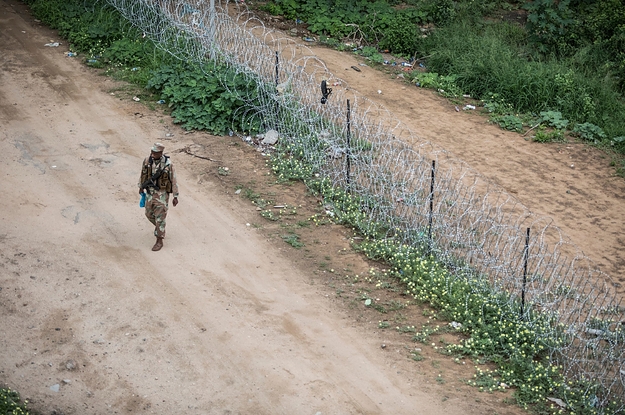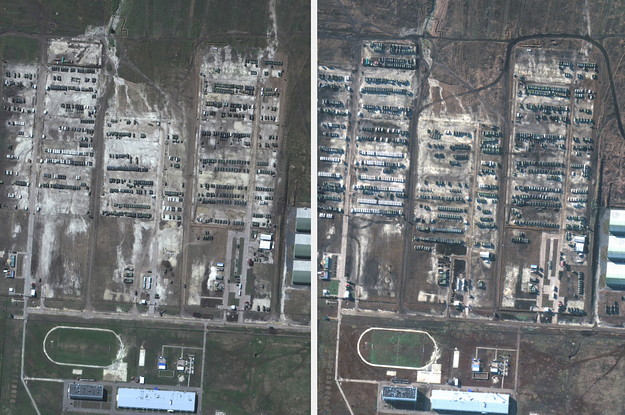
[ad_1]
Before the borders closed, Michele, 31, made a modest income buying clothes and electronics in South Africa and reselling them for profit across the border in Zimbabwe. But when the pandemic shut down most traffic between the two countries, she said, her revenue dried up and she had to try “other means to earn a living.”
Thousands of other cross-border traders in southern Africa face the same dilemma. For decades, this informal commercial network has provided steady work for people, mostly women, in the area’s borderlands. The United Nations has estimated that the industry makes up 40% of the $17 billion trade market among the 16 countries in the Southern African Development Community. But the pandemic has kicked down this essential economic pillar for communities where job opportunities are slim and there is limited access to COVID-19 vaccines, sparking a financial downturn with no end in sight.
Nearly 70% of traders in Zimbabwe are women, according to the UN, and they’ve had to find other sources of income. Some have tried buying and selling goods domestically, for less profit. Some have partnered with smugglers who sneak across the border to move products, taking a cut of the revenue. Some, like Michele, have begun selling sex, boarding, and companionship to the truck drivers stuck in town for weeks due to shipping delays, COVID screening bottlenecks, and confusion over shifting government policies.
One trucker has been staying with Michele at her small home in Beitbridge, Zimbabwe, for two weeks while awaiting clearance to get back on the road to transport goods as far as the Democratic Republic of Congo, a 15-hour drive. She prepares meals and a warm bath for him each day.
“This is life — what can we do?” said Michele, who requested partial anonymity because she didn’t want to publicize her current work situation. “I don’t want to think ahead. I work with what I have at the moment.”
Beitbridge, a trucking hub with a busy port along the Limpopo River, and other border towns have long offered opportunities for upward mobility through a bustling transnational trade network, which brought an infusion of South African currency, the rand, whose value has been more stable than the Zimbabwe dollars weakened from years of hyperinflation. But with that trade network restricted, those communities’ economic engine is sputtering.
“The virus and the resultant lockdown happened so fast that the women did not have enough time to prepare for any economic repercussions,” said Ernest Chirume, a researcher and member of the Catholic University of Zimbabwe’s Faculty of Humanities and Social Sciences, who wrote a paper on the effects of COVID-19 on informal traders.
Before the borders closed, Marian Siziba, 40, bought large appliances such as refrigerators, four-plate stoves, and solar panels from South Africa for resale to small downtown shops in Bulawayo, Zimbabwe’s second-biggest city. For months, she was able to make ends meet from her service selling foreign currency and issuing small loans, providing her with a trickle of payments from customers with ongoing debts. Lately, though, many of her clients have been unable to meet their dues.
Before the coronavirus, “we had already gotten used to economic hardships,” she said. “Only now it is worse because we cannot work.”
Fadzai Nyamande-Pangeti, a spokesperson for Zimbabwe’s International Organization for Migration, noted that the pandemic pummeled informal cross-border trade harder than other sectors. But in the absence of government relief, financial setbacks that once seemed temporary to Michele, Siziba, and other cross-border traders now feel indefinite.
The transportation challenges have widened wealth inequalities. Either people have the means to get around border restrictions or they don’t.
Nyasha Chakanyuka runs a popular clothing boutique in Bulawayo and said that the road closures haven’t hindered her sales because she has long relied on air travel, which most traders who spoke to BuzzFeed News said they couldn’t afford. In fact, the situation offered her an opportunity to expand her business: she has been buying up bulk inventory in other countries and selling goods to traders unable to travel out of Zimbabwe.
Others have turned to transporters who cross the land border illegally. “You can give someone that you trust money for them to buy goods for you in extraordinary South Africa, but that demands trust because the risks are obvious,” Siziba said.
Those who can’t afford to pay others to move their goods for them have had to find other ways to make ends meet while awaiting a return to business as usual.
Adapting to the new circumstances, Getrude Mwale, a trader in Bulawayo and a mother to five children, began selling clothes at the gate of her home, though business has been so slow that it has taken her a year to clear inventory she was once able to clear within a month.
“Selling from home means you are only selling to people who know you from the neighborhood,” Mwale said. “It hasn’t been easy.”
Before the pandemic, Sarudzai, who is 33 and requested partial anonymity to keep her work situation, traveled as far as Malawi to buy children’s clothing that she sold at a flea market in Masvingo, Zimbabwe, earning the equivalent of thousands of US dollars each year.
When the pandemic hit, she suddenly had piles of shirts, pants, and socks in her house but no one to sell to. With her business stalled, she decided to move to Beitbridge.
She sells samosas, fries, and soft drinks, but much of her income these days comes from transactional relationships selling sex and companionship to truck drivers who stay with her in the one-room wooden home she rents. She now earns enough money to send her two children back to school in Masvingo, where they remain, nearly 200 miles away from their mother.
“I always knew truckers have money — that’s why I made it here,” she said.
The Pulitzer Center helped support reporting for this story.
[ad_2]
Source link


